When you’re rushing through an airport, it’s easy to forget how vulnerable your smartphone can be. The Transportation Security Administration (TSA) warns travelers to be cautious – cybercriminals know airports are prime spots to target personal data. Here are seven habits that could put your information at risk.
1. Using Public USB Charging Stations
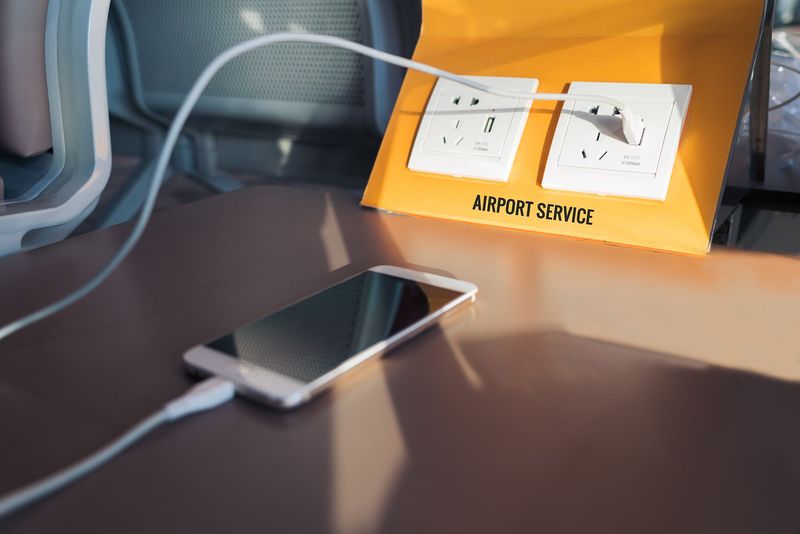
The allure of public USB charging stations can be hard to resist, especially when your phone’s battery is running low. Yet, these seemingly helpful ports can be manipulated by hackers to install malware on your device. Within moments, your phone may become a gateway for cybercriminals. Carrying your own charger and cable is a simple step that can save a lot of trouble. Imagine the peace of mind knowing your device is safe from tampering. Additionally, consider investing in a portable battery pack. With these precautions, you maintain control over your phone’s security, even in the bustling chaos of an airport.
2. Ignoring Bluetooth Settings
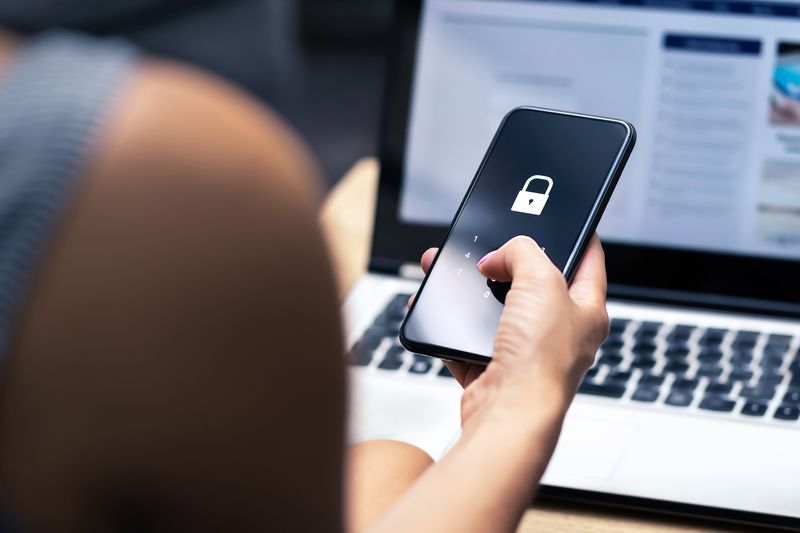
Bluetooth connectivity is a modern marvel, yet leaving it on in airports can be a vulnerability. Cybercriminals can exploit this open connection to access your device without you knowing. The TSA advises turning off Bluetooth unless actively in use. This simple change reduces your exposure to potential hacks significantly. Imagine the stealth of a thief who needs no physical contact to infiltrate your digital life. By managing your Bluetooth settings actively, you take a critical step in safeguarding your personal information. It’s a subtle but powerful defense against unwanted access and data theft in busy terminals.
3. Leaving Your Phone Unattended at Security or Boarding Gates
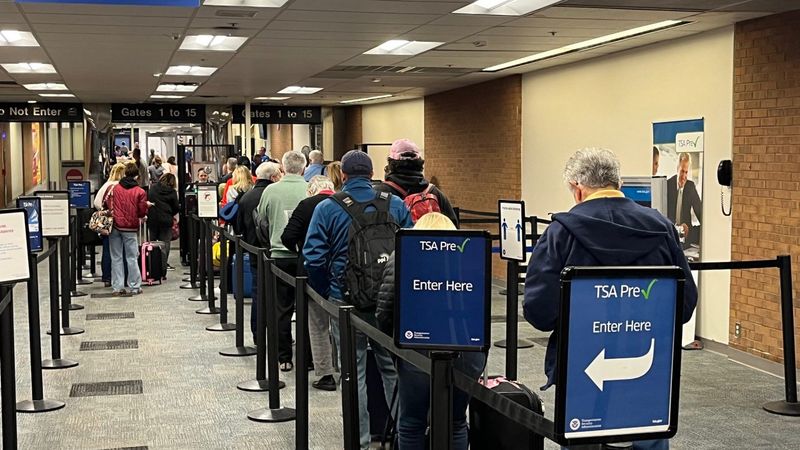
The hustle of airport security can lead to moments of distraction, perfect for opportunistic thieves. Leaving your phone unattended, even briefly, can result in it being stolen or tampered with. Always keep your phone within sight, especially during security checks. Consider using a secure, easily accessible pocket or bag to store it. Establishing a routine for handling your phone during these transitions can prevent loss and protect your digital information from prying eyes.
4. Downloading Unknown Apps While Traveling
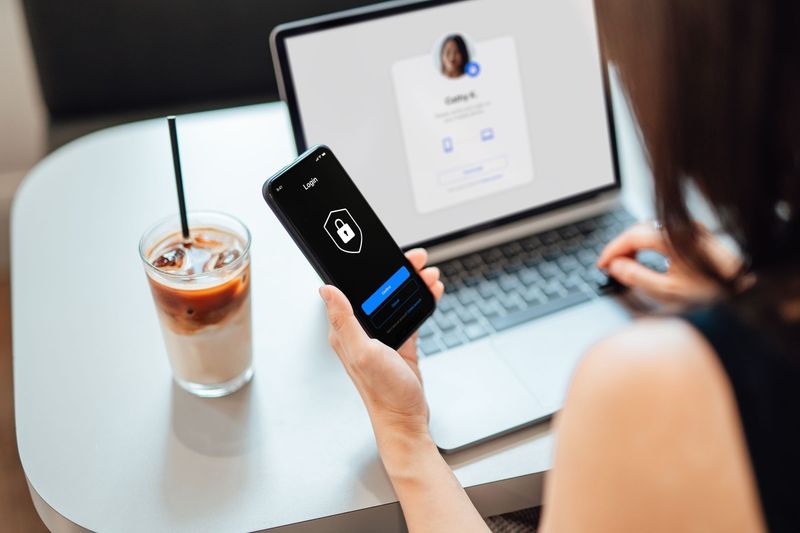
Traveling often prompts us to download apps for convenience, like navigation or entertainment. However, not all apps are safe, and malicious ones can harvest sensitive data. It’s essential to verify apps before downloading, ensuring they come from trusted sources. Always check app permissions and reviews to assess their legitimacy. By being meticulous about app downloads, you safeguard your privacy and maintain control over your data. Traveling should be an adventure, not a cyber risk waiting to happen.
5. Connecting to Free Airport Wi-Fi Without Protection

The convenience of free airport Wi-Fi can be a tempting offer as you wait for your flight. However, these networks often lack encryption, leaving your data exposed to prying eyes. Logging into banking apps or entering passwords becomes a gamble many aren’t aware of. A Virtual Private Network (VPN) can act as your digital shield, encrypting your data even on unsecured networks. Why take unnecessary risks when a VPN can provide security? Ensure your sensitive information remains confidential as you browse. Embrace this protective measure and fly with peace of mind, knowing your online activities are secure.
6. Failing to Update Software Before Traveling
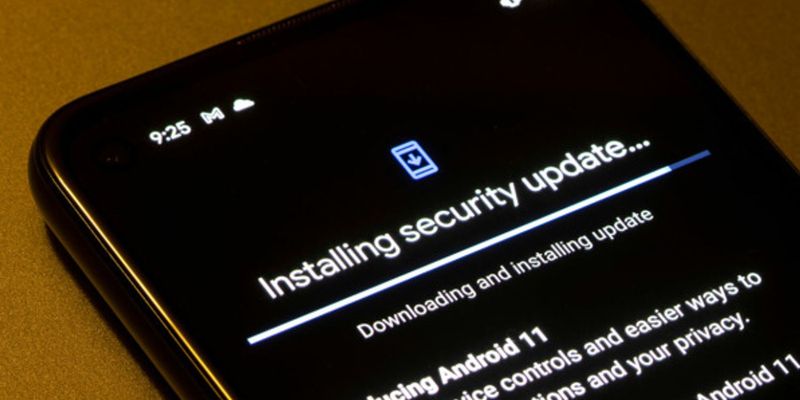
Software updates are more than just new features; they’re critical security enhancements. Traveling with outdated software makes your device an easier target for hackers. Updating before your trip ensures you have the latest defenses against potential threats. Imagine your phone as a fortress; outdated software leaves its gates wide open. Keeping your apps and operating system current closes those gaps, fortifying your device. This proactive measure helps keep your data safe from unauthorized access and potential breaches. Don’t let neglect be your downfall; update regularly for peace of mind on your travels.
7. Oversharing Travel Details on Social Media
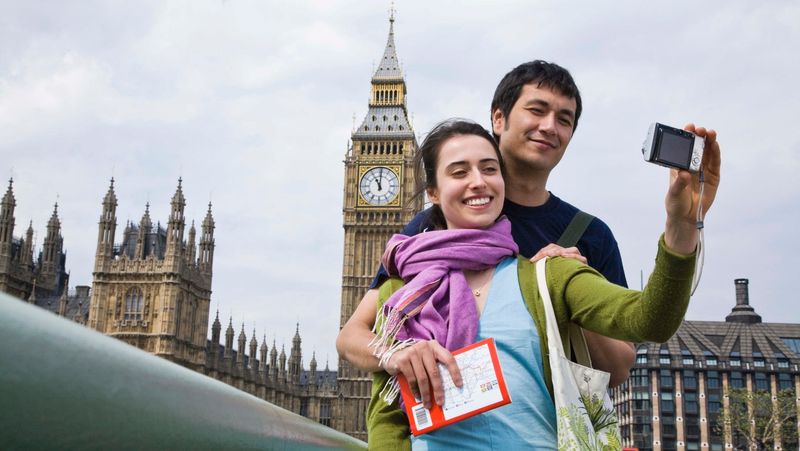
The excitement of traveling often leads to sharing every detail online. However, announcing your itinerary, boarding passes, or flight details can make you vulnerable to scams or identity theft. Cybercriminals monitor social media for such opportunities. Consider the implications of sharing too much; even a photo of a boarding pass can be misused. Protect your privacy by keeping travel details off public platforms. By exercising discretion, you shield yourself from unnecessary risks and enjoy a safer, more secure journey. Remember, some moments are best kept private for your peace of mind.



